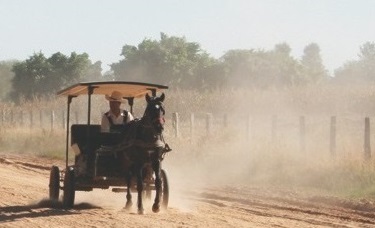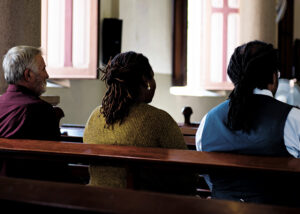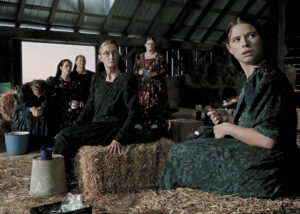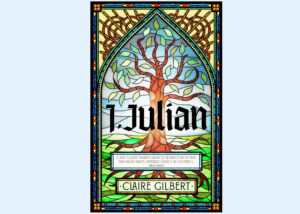Mennonites are talking about Women Talking, Miriam Toews’s latest novel. What are your thoughts? Feel free to comment below or send letters to letters@canadianmennonite.org.
Though I am still trying to figure out why the book troubled me—despite my admiration of Toews—some of my thoughts on the book are contained in Part 4 of “Modern ghosts of a horse-drawn scandal,” a series of articles about the non-fiction rape saga that provoked the book. (See Part 1, Part 2, Part 3.)
For those unfamiliar, the book is a “response in fiction” to the serial mass rape of at least 130 women and girls on the Manitoba Colony in Bolivia between 2005 and 2009. In the book, a group of women meet in a hayloft over two days to discuss how to respond to the horrific events.
I’ve had several lively discussions with people about the book. I’d love to hear more people’s responses.
If you want to dip into some context of the book and discussion of it, below you will find:
Comments about the book by Mennonites
Snippets of interviews with Miriam Toews
Some thoughts on fact, fiction, progress and patriarchy
Mennonites comment
Voice
“I expect that all of us would feel a bit more comfortable if the book publicists didn’t try to sell it as a window into the Mennonite world; if we knew that everyone else also knew that this was not a work of realism.
“Toews didn’t give voice to the voiceless in writing Women Talking and she’s not really ‘telling these women’s stories’. . . . She’s imagining her people, the women she knows from her own childhood Kleine Gemeinde community and what they would do and say—and sing—were they in the place of the women in Bolivia.” —S.L. Klassen (aka The Drunken Mennonite) in her blog, “Miriam Toews and #Mennotoo (2)”
(Note: A lively combination of nitty-gritty Menno history, snarky critique and appreciation of Toews—this post will make you think. I highly recommend it, even though Klassen gleefully mocked Part 1 of my Bolivia articles on Twitter).
“And so I had to laugh when I heard Toews say that she’d had backlash from her own people. That Mennonites didn’t want her to air our dirty laundry. As if people of her and my background hadn’t been ragging on the Old Colony for their ‘backwardness’ for decades.” —S.L. Klassen in “Miriam Toews and #Mennotoo (2)”
Manifesto
“[T]he book is . . . a manifesto, born out of vulnerability, complication, and strength. . . . A manifesto not only for them, in my opinion, but for women period.”—Dora Dueck, Mennonite fiction writer and part of a small group that organized a vigil for the rape victims in 2009. Dora’s full blog post is here.
Brought near
“Miriam Toews has taken this story and plucked it out of time and space; she has hung it on a hook (or a wash line, if you like), a space between earth and heaven, and has made it about something other than a group of strange women in a faraway land with a culture so obscure as to be almost impenetrable.”
—Lora Braun (my sister), in her blog post, “Women Talking and Dirty Laundry”
A worthy voice
“While some critics will criticize the book as an untrue and unbelievable depiction of a Mennonite colony in crisis, I think Toews’s voice needs to be heard.” —Jack Heppner in “Women Talking, by Miriam Toews; A Book Review” on MySteinbach.ca
(Note: Jack has considerable first-hand knowledge of the Bolivian situation. I draw considerably on his insights in my Bolivia series.)
Basher
“[Toews] is highly successful at what she does. She is a basher. . . . But we buy her books, and folks like me complain.”—Off-the-record comment from a well-read Mennonite who attended the launch of Women Talking in Winnipeg
Upsetting
“I have not read the book but have read several reviews and watched her interview on the internet. That alone was enough to upset me extremely—not sure I can handle reading the book. There are so many inaccuracies just in the reviews . . . like saying that the Manitoba Colony originated in the Molotschna Colony, all women are illiterate, 15-year-old boys tell their mothers what to do. . . .”—Off-the-record comment from a Mennonite woman with considerable first-hand knowledge of the Bolivian situation
Toews, in her own words
Self-critical
“I felt an obligation, a need, to write about these women. I’m related to them. I could easily have been one of them.”
“I think in my work, and in my life, I’ve always been attempting to, as they used to say, stick it to the man.”
“The details were shocking but these types of crimes have always occurred in places like this.”
“Men’s options are so limited, too [in the colony setting].”
“I’ve seen the warmth and love the Mennonite community can provide, but there are deep problems. I feel that I can be, I have to be, self-critical.” —Quoted in The Guardian, “Miriam Toews: ‘I needed to write about these women I could have been one of them’”
My community
[In relation to the Manitoba Colony:] “This is my community and these are women that I could picture, . . . in a sense that I know. . . .” —On the CBC Radio program “The Next Chapter”
Love and anger
“My anger toward my Mennonite community and my love for it go hand in hand. I’ve seen first-hand the harm done by fundamentalism. . . .”
“I’m not afraid of what the Mennonite patriarchy and power are going to say or do.”
“There’s love in the Mennonite community, there are children being raised properly, there’s cooperation, harmony and there are Mennonites who believe deeply in their ideological convictions to live simply and off the grid. But what happens within those communities when that kind of patriarchal power festers. The elders can get away with murder—and that’s not an exaggeration.”
“I identify as a Mennonite and I expect more, I want more. I’ve seen the good, I’ve see the beauty of them. I feel an obligation to poke at these men and to say, ‘You can get better.’” —Quoted in Now article, “Author Miriam Toews and the Mennonite #MeToo”
My people
“These are my people, essentially, and I’ve been to these colonies and I grew up in the original Russian Mennonite settlement in Canada, the most conservative Mennonite community in Canada.” [Toews grew up in Steinbach, Man.]—Quote in “Find out why Miriam Toews’s new novel is going to have us all talking” at Toronto.com
Non-fiction
Finally, for Toews’s non-fiction rendering of what happened in Bolivia, placed in the context of her tragic experience of Mennonites and in the context of her book tour with author Rudy Wiebe, see her 2016 article, “Peace shall destroy many,” in the prestigious British publication, Granta.
See more about the case and links to some reviews of the novel here.
Thoughts on fact, fiction, progress and patriarchy
Much of the Mennonite discussion of Women Talking revolves around the tension between fact and fiction. Some say fiction is simply fiction: who cares if haylofts, English hymns and summer kitchens don’t belong on Bolivian colonies?
Personally, I think the tension is worth exploring.
Let me start with what I like about the book: The topic is important. The colony women are likeable and interesting. The treatment of the women’s faith seemed plausible and respectful. I liked the comments about being in the world/of the world. And the crescendo of story lines and metaphors toward the end made my imagination crackle.
I consider Toews a writer of rarest giftedness. I found her novel A Complicated Kindness brilliant.
As for fact and fiction, I believe in both, though I value the ability of fiction to follow truth well beyond the beaten path of fact.
Bumpy brilliance
But with Women Talking Toews has made that path unnecessarily bumpy and some of her fictionalization sidetracks readers.
The book points straight to Bolivia. The note to readers at the beginning outlines the “true-life” events of the Manitoba Colony rape case and calls the book a response in fiction. In interviews, Toews speaks freely about the true-life events in Bolivia. And the book uses many of the basic facts and details of the ghost rape saga.
Pinch of absurdity
Based on that, I assumed the book was essentially set in a lightly fictionalized Manitoba Colony, though the characters would obviously be heavily fictional. And, of course, fiction allows for a degree of deviation, including Toews’s caricature-ish inclinations—what one endorser of the book calls a “firm pinch of absurdity.” Fair enough.
More than anything, I really wanted the book to help me better understand the women of Manitoba Colony, of whom I had been reading and hearing so much about in preparing a series of articles about the ghost rape saga. That was my expectation, perhaps unrealistic or misplaced.
It took me a long time to realize that despite pointing straight at Bolivia, Toews did not really set the book in Bolivia. It is an amalgamation of the Steinbach of her youth, Mexican colonies where she has spent time (quite different from Bolivian colonies), key bits of Bolivia, Hutterites perhaps (shared dining rooms) and her imagination. Sometimes she is clearly mirroring the ghost rape details and Bolivian realities and other times she contradicts them. A clear inclination one way or the other would have helped readers like me.
I was not alone in thinking that the book was actually set in Bolivia. A reader of no less stature and sophistication than the reviewer for The Times Literary Supplement (which calls itself “The leading international weekly for literary culture”) also assumed the eight central women in the book were “all members of a Mennonite colony in Bolivia.”
Sloppy?
As I read, I didn’t know if Toews was being sloppy (canola would be hard to find on Bolivian colonies) or hadn’t done her homework (they don’t have mile roads or suspenders on Bolivian colonies) or was just claiming artistic licence (for example, by saying incorrectly that the women would be forced to forgive the men under threat of being banned from the colony).
Amalgamation is fine, when done well, but in this case, I found it confusing and muddled. Most readers won’t notice, but for those who know Mennonite particularities, it just makes the story implausible.
I never felt like I was in Bolivia. I wasn’t quite sure where I was.
Just like thorough research of setting and culture shows in a novel, so does its absence. I’m guessing that when Toews writes about a particular part of London, as she does in the book, she has the details right, as one would expect. I heard a fiction writer say something like: You need to get the real stuff right so the unreal stuff works.
If someone writes a novel about Italy in the 1930s or about New York Jews today or Inuit people in any time period, we expect and benefit from a writer’s thorough research. People in those true-life settings should recognize the context. I think it is a matter of respect and fairness to represent people accurately, especially when you are essentially speaking for them (without ruling out fantastical additions).
Toews as colony insider
In interviews, Toews presents herself as a colony insider. “This is my community,” she said in one interview. That feels like a stretch.
In another interview, she said, “These are my people, essentially, and I’ve been to these colonies and I grew up in the original Russian Mennonite settlement in Canada, the most conservative Mennonite community in Canada.” Steinbach? Really?
By “these colonies,” I think she means Mexican colonies, not Bolivian ones. These claims erode credibility. Toews is a brilliant novelist and someone with an important Mennonite story of her own, but she is not an authority on colony Mennonites. Nor does she appear to have spoken to the people who are. (To be clear, I am in no way an authority on colony Mennonites either, though I spoke with people who certainly are.)
Peace Shall Destroy
In Peace Shall Destroy Many—another fictional critique of Mennonites—Rudy Wiebe says in the foreword: “The Mennonites portrayed in this book belong to no particular faction; they could belong to any one of several groups that came to Canada from Russia in the 1920s. All characters and situations are fictional.” That feels more honest to me than the way Toews presents her book, in the introductory note and in interviews. Though I know such clarifications are seen by some as unsophisticated.
When Wiebe talks about ploughing with horses and how they move differently when they know they can rest soon, I have full confidence that he knows what he is talking about. I presume he knows that some readers will have ploughed with horses and if he gets such details wrong, he will lose credibility. (Note to Miriam Toews: manure is not usually found in haylofts, and when carrying pails of water to livestock, running is not an option. Minor details, but they belie distance from the subject matter and context.)
I do not think Toews made any real effort to satisfy or earn the respect of readers who know the Bolivian colony setting. That is her right, but the book would have been better had she considered and consulted such readers. As I have found out, many people who care a great deal about colony women simply do not see the book as credible. I understand that. It is a loss. A missed opportunity.
It’s not fair to the colony Mennonites of Bolivia that many people—not all—will take the book as an accurate reflection of their reality.
Fictional bypass
By fictionalizing and amalgamating the context, Toews bypasses the need to understand as fully as possible the specific Bolivian colonies. In my view, understanding them on their own terms is essential (a case I make in my articles).
Some people will say that the book is about something much bigger than Mennonites (indeed) and that my parochial concerns miss the point of fiction. Who cares, they say, if there are no haylofts in Bolivian colonies when patriarchy needs to be taken down? I have pondered this view and thought more about why the book does not sit well with me.
Progress and patriarchy
One of the main things Toews fictionalizes is the possibility of women leaving colonies. The story makes it clear that leaving would be a monumental task, but in reality it would be “well-nigh impossible,” as someone with far more colony knowledge than Toews put it. That is arguably the essence of the tragedy: a lack of options. Toews’s fiction rather sidesteps that reality. That does not negate the value of the story she tells, but perhaps it leaves a deeper reality unexplored.
Even if the women had left, surely the dysfunction of the men would find other targets.
That points to a particularly unfashionable possibility: Perhaps it is just as important to get inside the world of the men as inside the women’s world. Acknowledging the reality of victims and supporting them is essential. It is priority one. Walking alongside perpetrators is also an essential part of change.
The book is about something bigger than prescribing solutions to a particular case in a particular place, as it should be. Still, Toews’s imagination was sparked by a specific moment, a story, and there is more to that moment and story than she tells. It is as if she took someone else’s true-life story and went in a direction not quite in keeping with that story. I would have loved to read a Toews book actually set in Bolivia and informed by those most knowledgeable about that reality. That story would have been even darker.
Sexual predators talking
The book is largely about fundamentalist patriarchy (terms Toews uses in interviews). That is part of the Anabaptist story, a part that must be told. Another part of the Anabaptist story is a truly remarkable track record of working with deeply troubled men. In addition to prison visitation programs in many places, the highly effective work of Circles of Support and Accountability (CoSA)—with its Mennonite roots and branches—is a story worth telling, if our evermore progressively judgmental society can entertain the value of befriending, not just critiquing, sexually violent men. CoSA’s goal is simple: no more victims. This program effectively contributes to that goal not with a sophisticated critique of misogyny—though surely participants could do that as ably as most—but by surrounding perpetrators with a very raw and real form of tough love.
It’s sexier to talk about the patriarchy of the most conservative Mennonites, with a single backward bishop as the prime target, but the CoSA-type stories are also an essential part of the Anabaptist narrative. I’d like to read the CoSA-angled novel about the Manitoba Colony crisis.
Men need to change. Whether in Bolivian colonies, the backrooms of Hollywood or on the mile roads where I live. It may be that the people who have the greatest possibility of contributing to the safety of colony women and girls are the outside men who have rapport with colony leaders.
My own conclusion about the Bolivian situation is that it is virtually impossibly for North Americans to contribute to the well-being of colony women and girls—which is of course directly tied to the health of colony men and boys—without seeing the world through colony eyes (those of women and men), including how they see us.
According to people I spoke with, many colony Mennonites in Bolivia see us as unfaithful, sell-out assimilationists. We just go along with whatever the materialist, individualist mainstream culture has to offer. Of course, they have a point. That shortcoming is as glaring to them as their insularity and patriarchy are to us. We assume we are better; they assume they are better. Therefore, we lack moral authority to tell them that they should be more like us. They are not looking to us for enlightenment; we must recognize that. The path to wholeness must include humility and openness on our part. I don’t get that vibe from Toews. (More on that in Part 4 of my series.)
On some level, that includes an admission on our part that progress—the trajectory of civilization (including progressiveness)—may be fundamentally flawed. That is to say that low-tech, rural, agrarian people with minimal formal education may have some essential wisdom for us, even if they have major flaws. Their lives are a critique of the progress narrative we have adopted. We cannot talk about insularity and patriarchy if we cannot hear what they have to say about assimilation.
This does not fit with Toews’s work, nor with most Mennonite or other literature. Many of the prominent Mennonite writers escaped the backward rural world and broadened their horizons, obtaining higher education (not available in small towns) and moving to big cities. They live and tell the story of progress and civilization.
Women Talking often leans toward progress. Literacy, formal education, art, literature, the city, and thinking are all held up, and with them the values of civilization, so ingrained that we can hardly imagine them having any sort of downside.
For all the good progress has done (increased life expectancy, democracy, Old Dutch chips) it has also produced climate change, gross income inequality, political polarization, and no shortage of violent sexual offenders. The frat house is an apt symbol of progress, alongside the women’s studies program across campus.
All that to say that I still actually like and respect Miriam Toews; I just want to read the post-progress version of Women Talking.
Return to the sections above:
Comments about the book by Mennonites
Snippets of interviews with Miriam Toews
Some thoughts on fact, fiction, progress and patriarchy
Feel free to comment below or send letters to letters@canadianmennonite.org.









Leave a Reply
You must be logged in to post a comment.